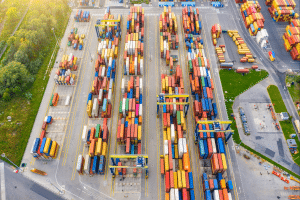The integration of core geospatial with emerging tech such as AI, ML, IoT, and others represent a significant evolution in the field, leading to unprecedented possibilities and opportunities. In essence, the future of integrating geospatial and emerging technologies holds immense promise for revolutionizing how we understand, interact with, and navigate the world around us.
As these technologies continue to evolve and intersect, they will undoubtedly shape the way we live, work, and innovate in the years to come. For instance, geospatial data analysis, powered by AI/ ML, is crucial for precise decision-making. When integrated with IoT, it can be used for real-time monitoring and emergency response, and enhancing efficiency in transportation and agriculture.
Collaborative geospatial initiatives foster innovation across diverse industries. Moreover, advancements in connectivity and satellite tech is leading to greater accessibility to geospatial data.
Upscaling Investments
To foster a comprehensive and innovative geospatial ecosystem that supports digital transformation, drives economic growth, challenges effectively, there is a need to invest in geospatial infrastructure, which includes satellite systems and data repositories as well. There is also a need to establish common standards for geospatial data formats and exchange.
Developing clear policies and regulatory frameworks for geospatial data use should also be a key priority. Open data initiatives foster public-private partnerships for collaborative geospatial projects, and help in establishing innovation hubs and incubators,
A Better Tomorrow
Geospatial helps governments, businesses, and organizations drive innovation, and unlock new opportunities for sustainable development and prosperity on a global scale. Decision-makers can best embrace spatial technology to harmonize economic necessity by integrating spatial data into policy formulation, fostering collaboration and knowledge sharing among stakeholders, prioritizing investments in spatial infrastructure and capacity building.
They can better utilize the technologies to ensure equitable access to spatial data and tools for all communities, incorporate spatial considerations into investment decisions, for monitoring and evaluation of policies and projects. We should promote international collaboration to harmonize standards and address global challenges to raise awareness about the importance of geospatial applications.
Disclaimer: Views Expressed are Author's Own. Geospatial World May or May Not Endorse it









